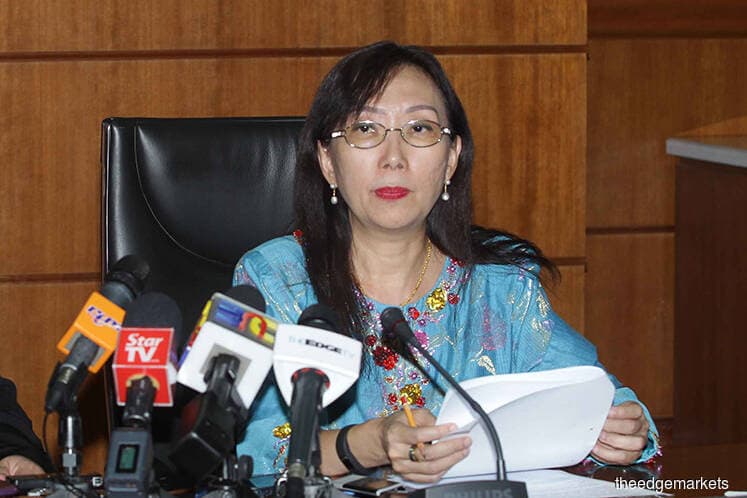
KUALA LUMPUR (Nov 28): Primary Industries Minister Teresa Kok has come out to defend oil palm as "the best agri-commodity for Malaysia", in light of yesterday's negative comment on the future value of the commodity as opposed to other crops such as coconut.
Kok said she 'viewed with much concern' the comment by former finance minister Tun Daim Zainuddin — an advocate of coconuts — of palm oil's bleak future unless the government can use palm oil to address food security issues.
"My opinion is that both oil palm and coconut cultivation, which are highly appropriate for our climatic conditions, have their respective roles in our environment," she said in a statement today.
"When properly managed these could prove complementary to each other in many ways," Kok said, adding that there is no need to aggressively switch away from oil palm cultivation as demand is quite assured.
"There is a good reason why palm oil is still the best agri-commodity for Malaysia. The industry contributed 4.5% to the Malaysian gross domestic product (GDP) and RM67.5 billion or 52.8% of export earnings to the country in 2018," she added.
Kok pointed out that palm oil is the most cost-effective oil, and it is hard to imagine the product being replaced by other oils, including coconut, for its pricing, functionality and versatility.
"Tun Daim has rightly pointed out that the future for palm oil hinges upon creating more food demand, through diversification of applications and new product innovations.
"Curiously, experts in the oils and fats fraternity tell us that new product innovations with any oil or fat [are] actually becoming more far and wide but regular inter-oil substitutions [are] highly possible," she said.
At a conference yesterday, Daim — who is also the chairman of the Council of Eminent Persons which advised the prime minister on nationwide reforms last year — said "the future is in coconuts, and not palm oil".
"Unless they do more research, in the case of palm oil by turning it into, let us say, more food," he added.
Malaysia is the second largest global producer of palm oil after neighbouring Indonesia, with over 265,000 smallholders in the country, according to a recent statement by the ministry.
Kok, in her response to Daim, agreed that corrective actions are needed to address concerns surrounding palm oil cultivation — namely productivity and earnings of smallholders, as well as the environmental sustainability of the crop's cultivation.
"The good thing for palm oil is that global supply and demand dynamics are in a very tightly balanced platform.
"We simply need to pay greater attention to our current cultivation and processing practices," Kok said, pointing to measures like Malaysian Sustainable Palm Oil (MPSO) certification to address the matter.
Furthermore, she said, the ministry is enforcing new policies such as capping the total oil palm cultivated area at 6.5 million hectares, stopping new planting of oil palm in the peatland, banning the conversion of forest reserved areas for oil palm cultivation, and opening up oil palm plantation maps available for public access.
She also "partially agrees" with Daim's comment on the prospects of coconuts, and proposes coconut cultivation along coastal roads to be revitalised using high yielding short dwarf coconut palms.
"My ministry has been encouraging smallholders to practise inter-cropping with other crops that fetch high prices.
"These could include pineapples, coconuts, vegetables, as well as animal husbandry to diversify their income sources. They won't be so affected when the palm oil price is low," she added.
Kok further draws attention to the fact that the palm oil industry also produces palm kernel oil from the kernel of the oil palm fruit.
"This for all purposes duplicates the functionality of coconut oil and is highly in demand. Should Malaysia venture into a targeted coconut oil cultivation program, I can assure you that it will also be welcomed by our palm oleochemical industries," she said.